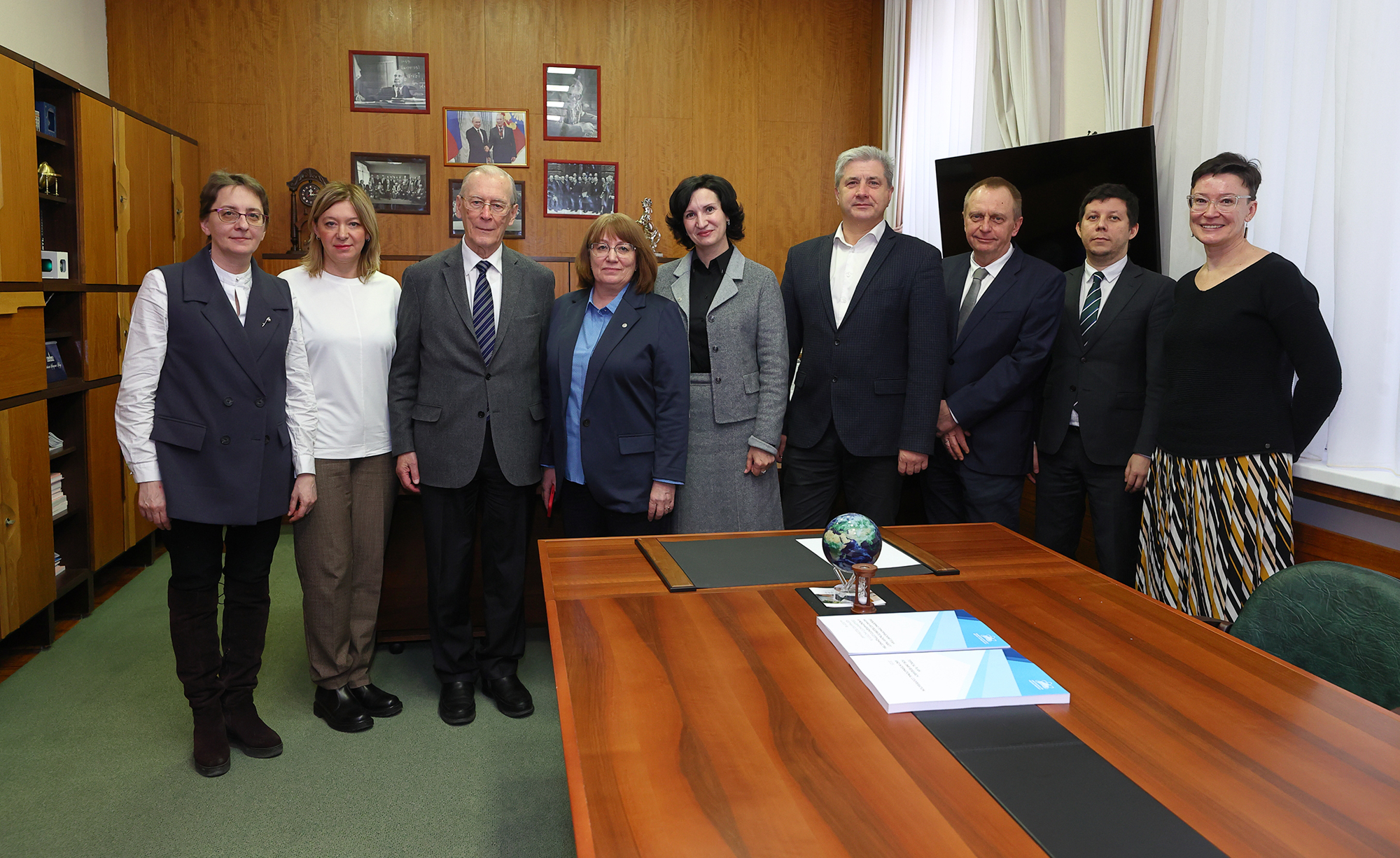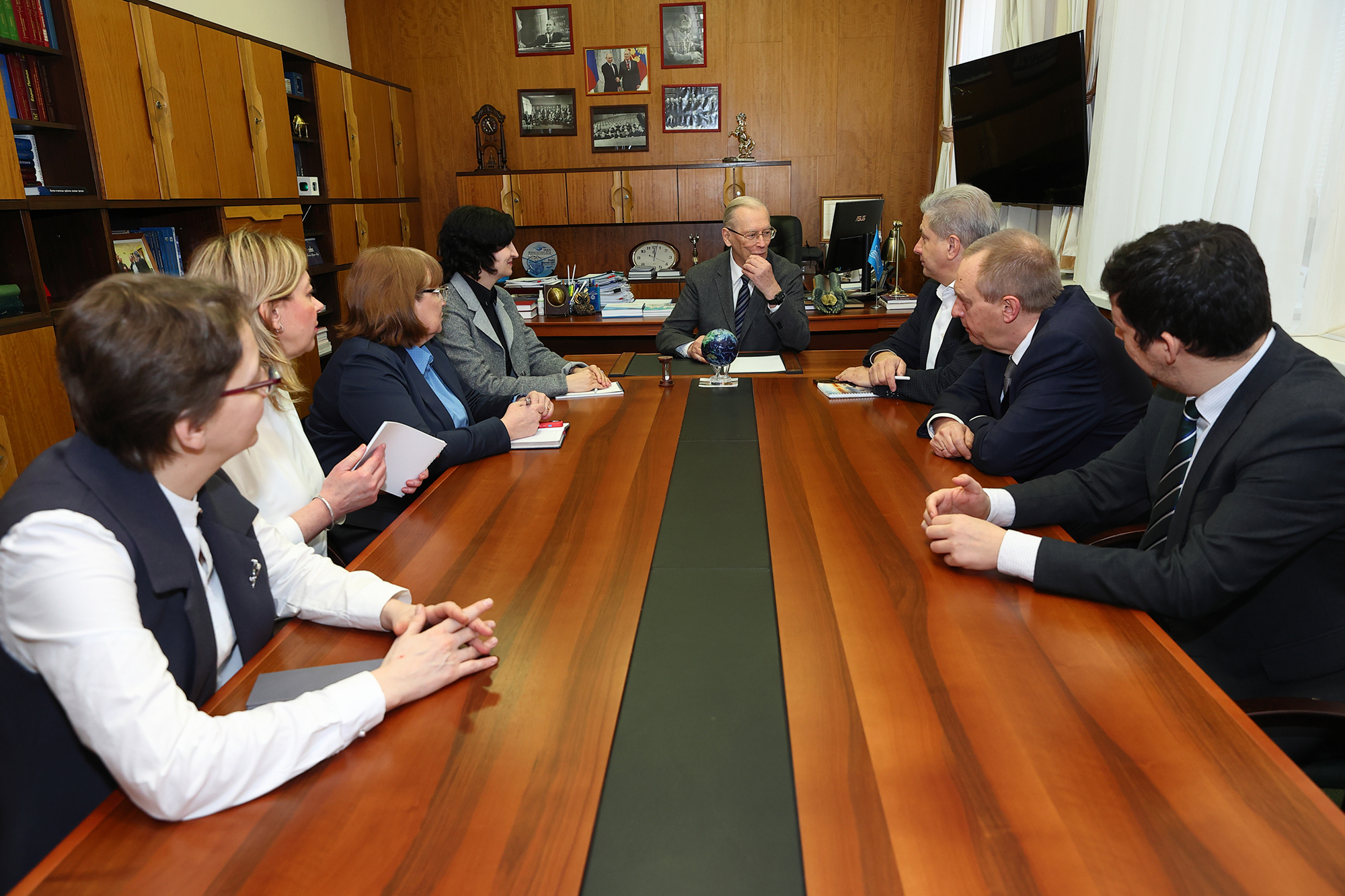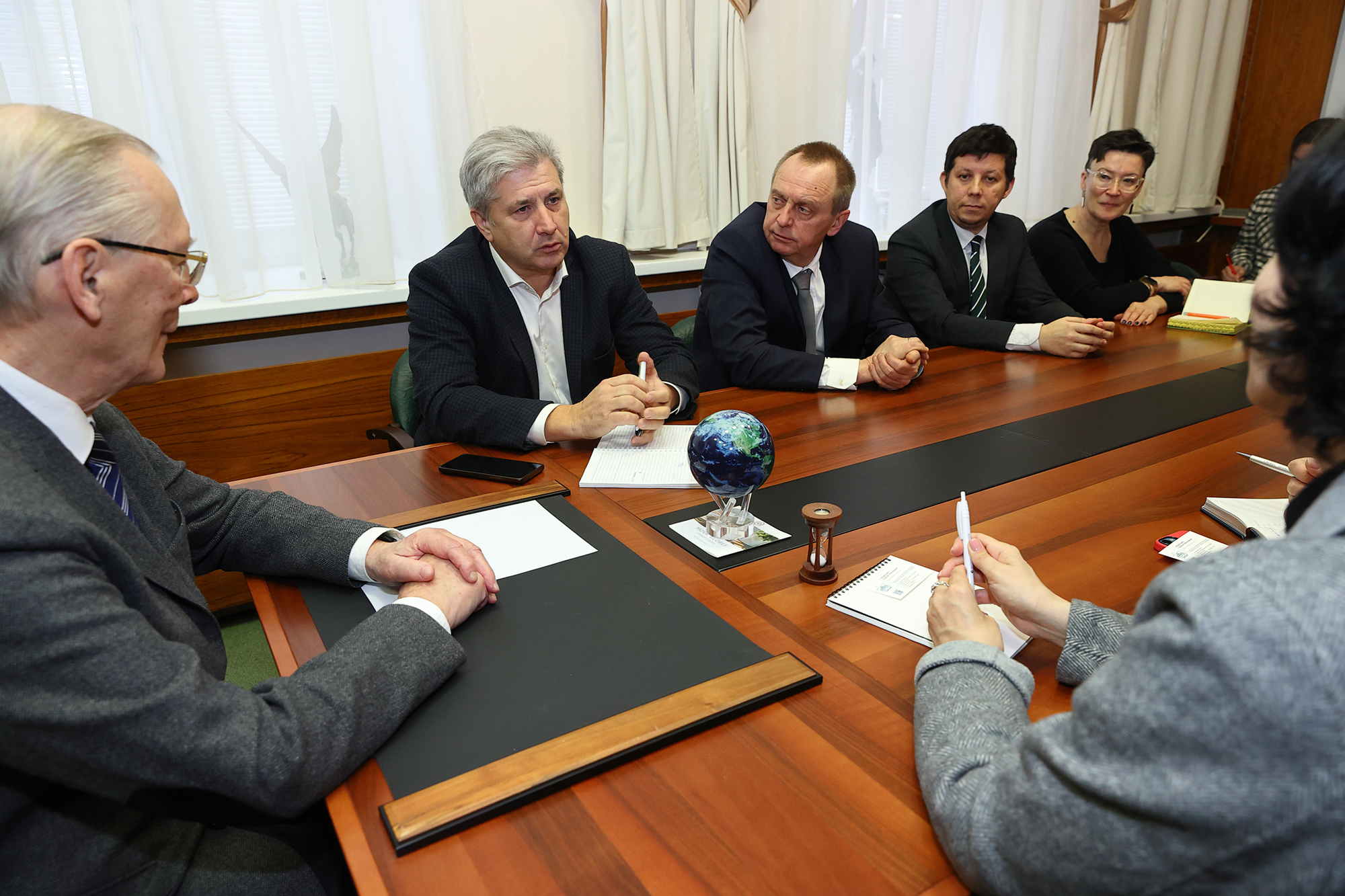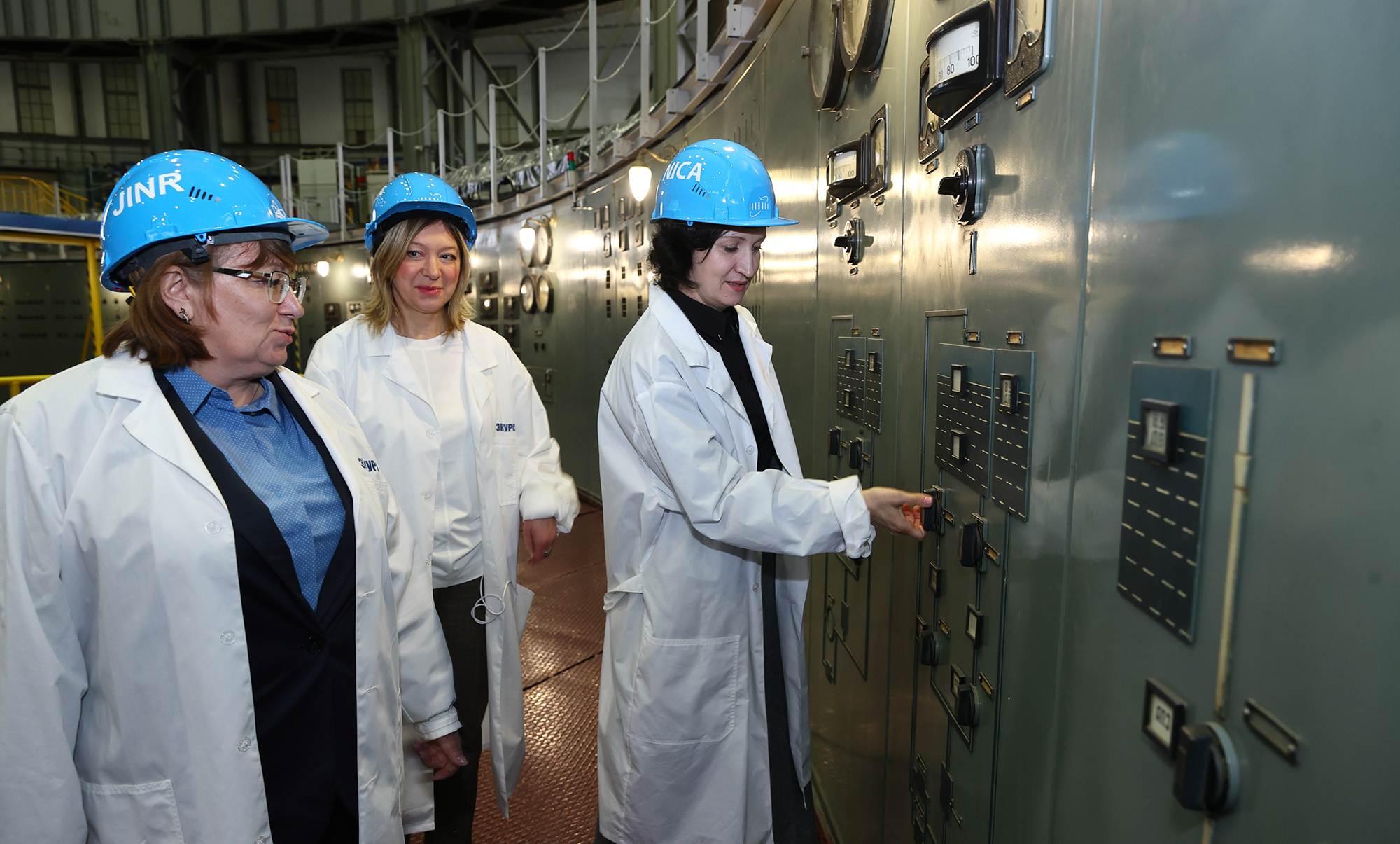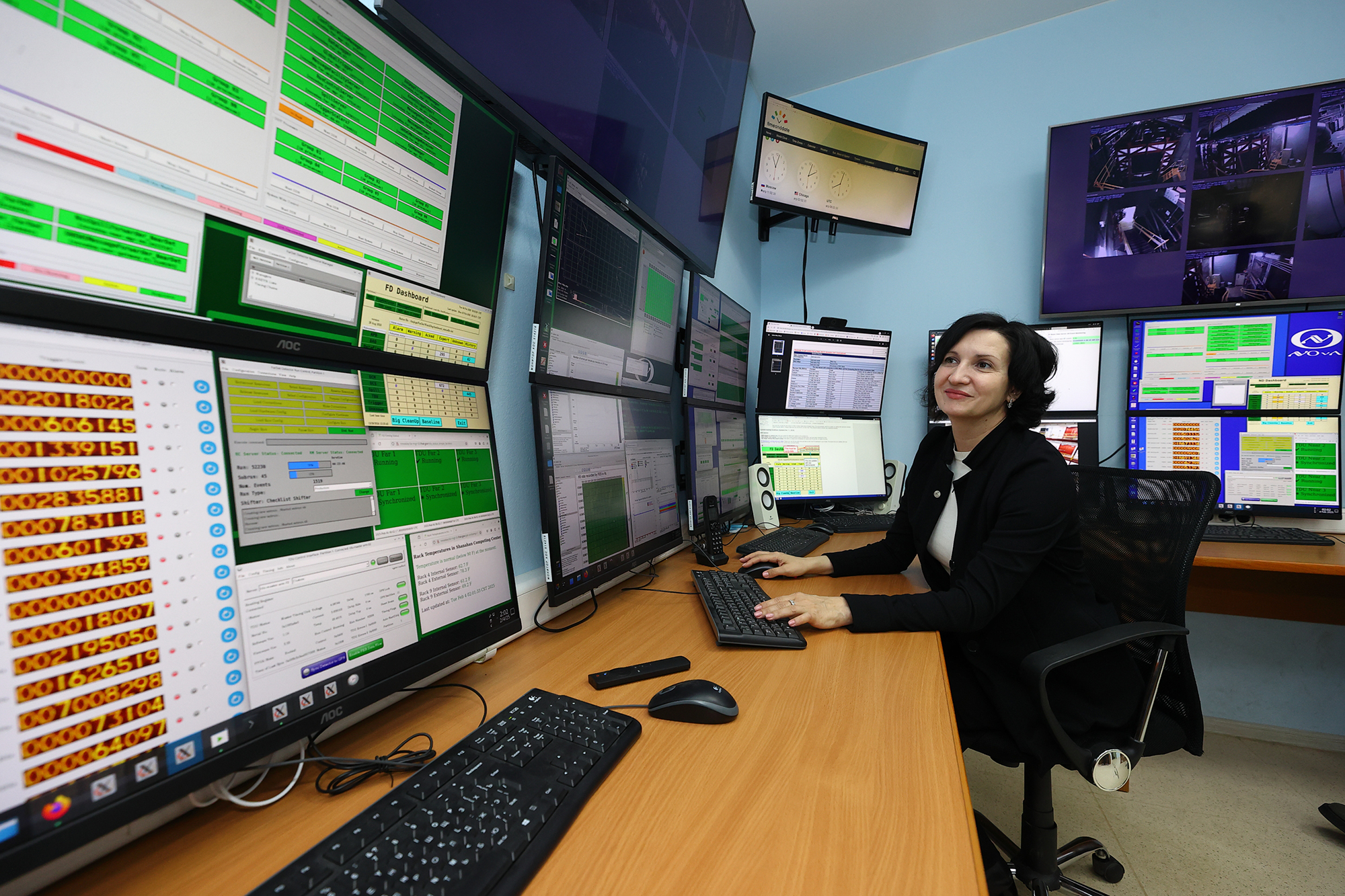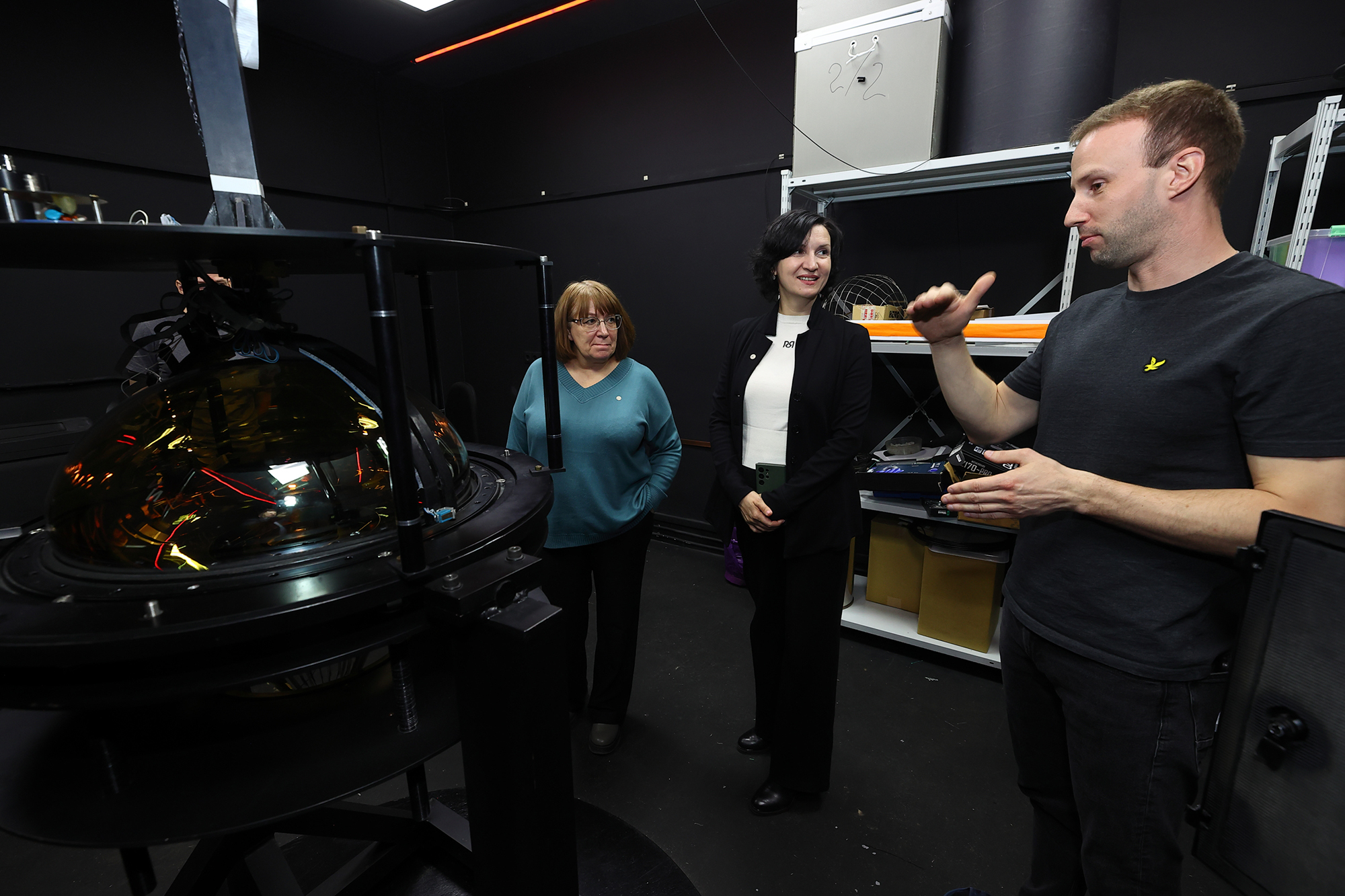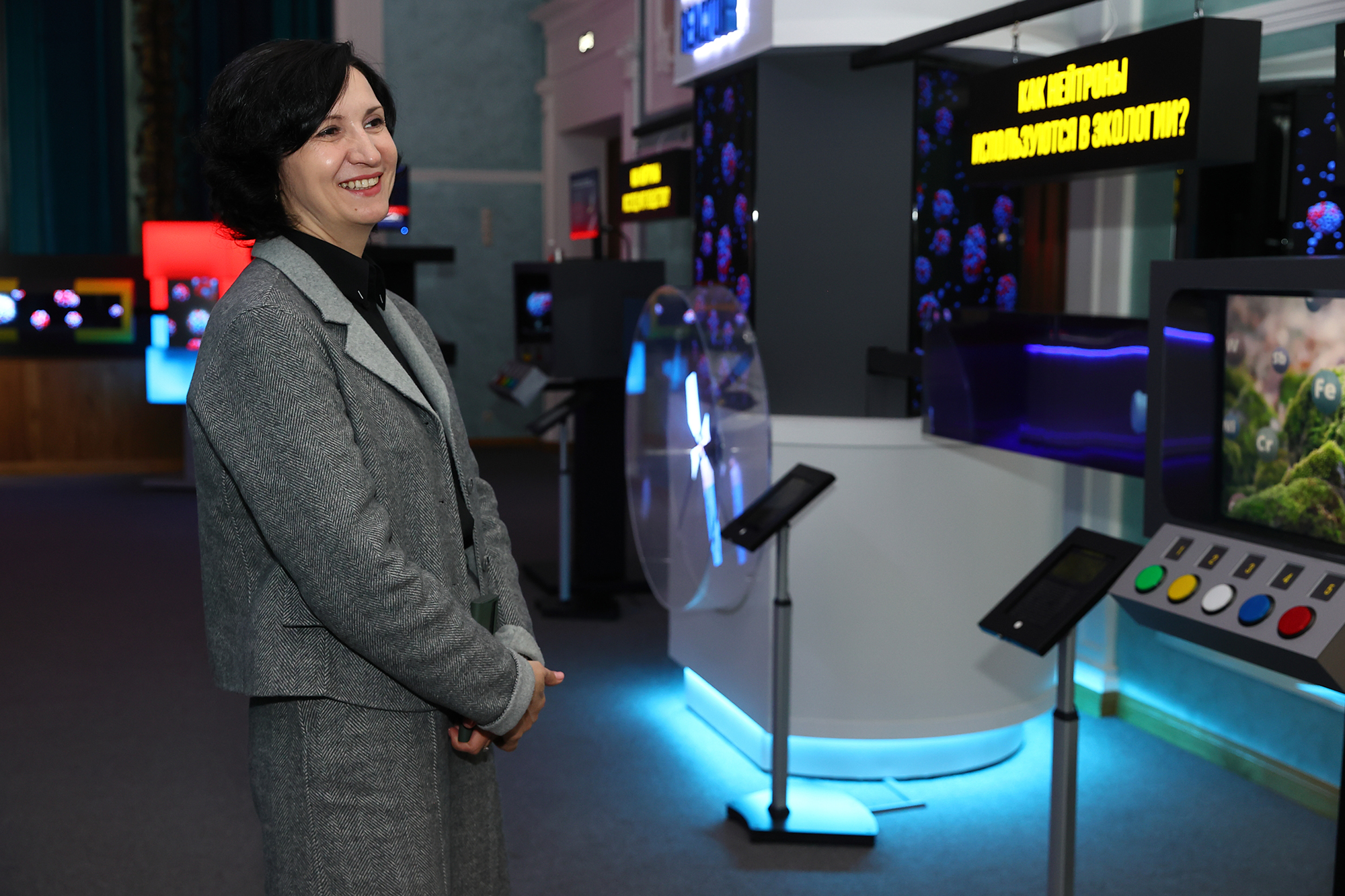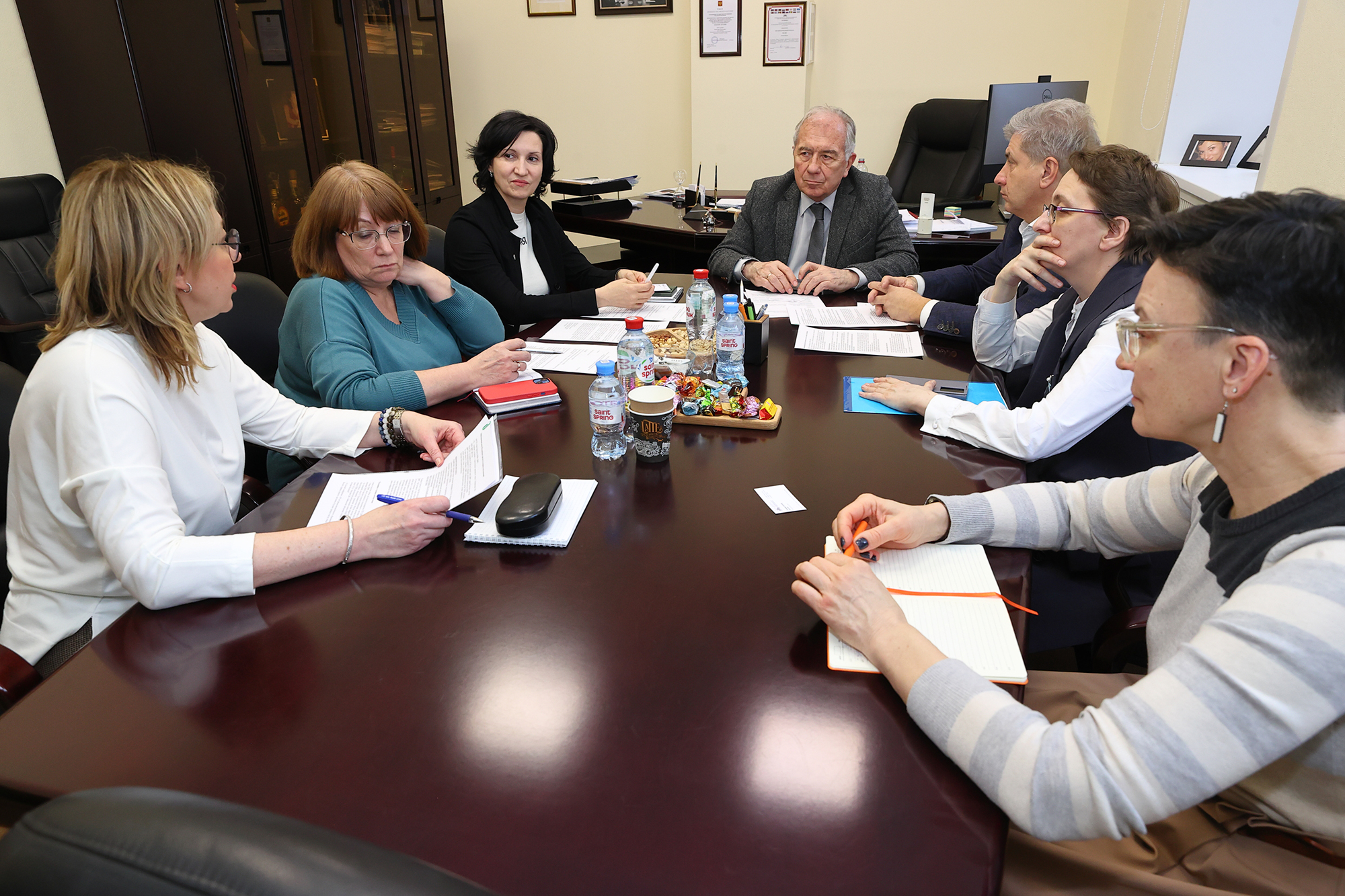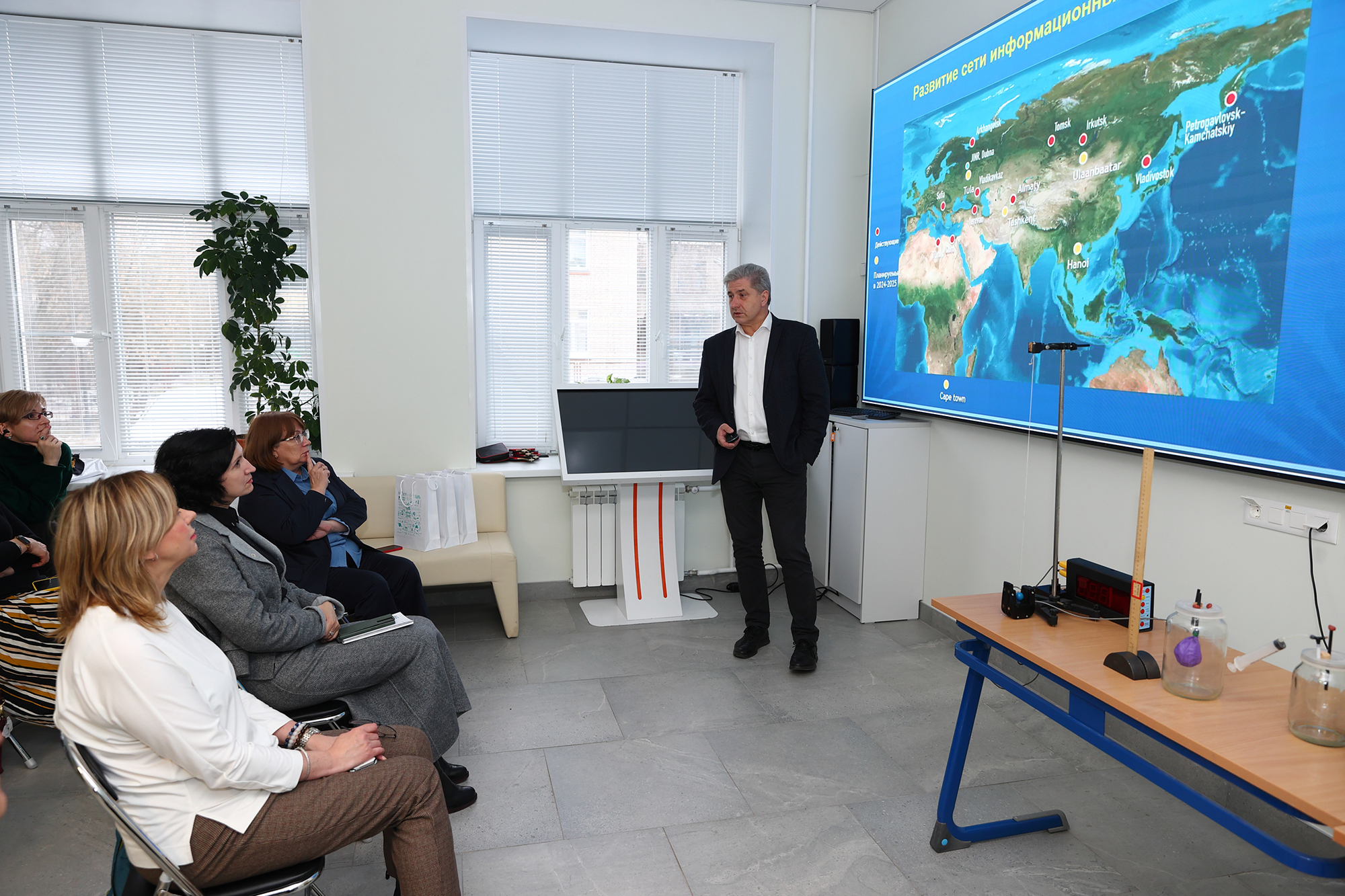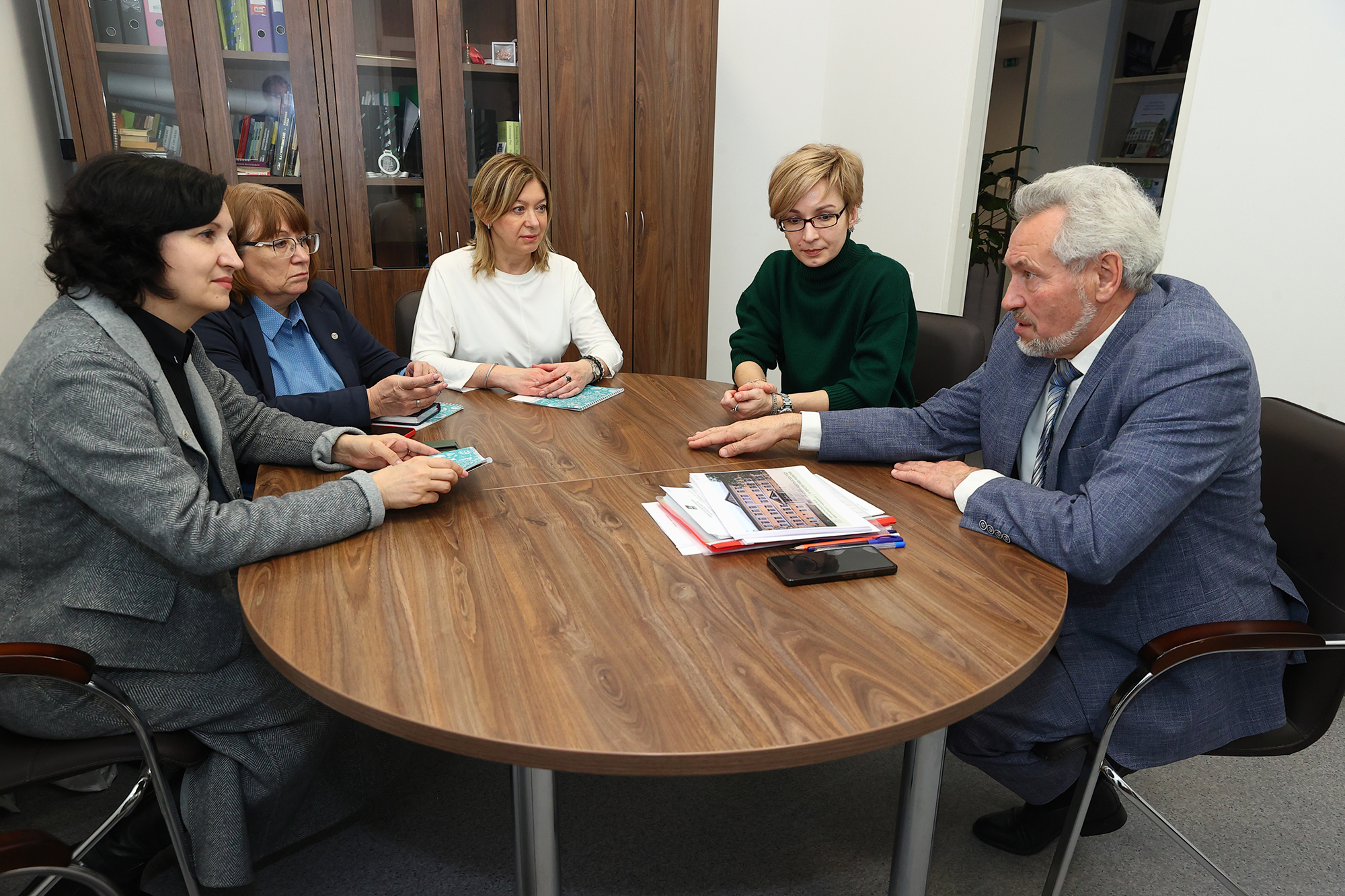Cooperation development with Primorye in education discussed at JINR
News, 12 February 2025
On 3–4 February, a delegation from Primorsky Krai (Russia) led by the region’s Deputy Minister of Education Anna Mekhovskaya visited the Joint Institute for Nuclear Research. During a working meeting with representatives of the JINR Directorate, the parties discussed scientific and educational cooperation prospects. As part of the visit, the guests got introduced to the Institute’s research directions and unique scientific infrastructure.
Welcoming the delegation, JINR Scientific Leader, Academician of the Russian Academy of Sciences Victor Matveev stressed the importance of these meetings for strengthening cooperation and noted the great history of the Institute’s relations with scientific and educational institutions of Primorye. “JINR expresses its sincere interest in developing research and education not only in Vladivostok, but also in other cities of Primorsky Krai. Our mutual goal is to prepare the ground on which new talents will soon grow,” Victor Matveev said.
Acting Deputy Minister of Education of Primorsky Krai Anna Mekhovskaya shared her first impressions of the visit to Dubna: “Today we witnessed that JINR is creating science that we can be proud of. I am convinced that our cooperation will help determine the future development of science and technology in Primorsky Krai”. At the same time, the deputy minister noted the acute shortage of teachers in the region, in particular, those specialising in physics.
JINR University Centre Director Dmitry Kamanin noted that despite prioritising research activities, the Institute actively participates in regional educational programmes and initiatives, acknowledging the importance of working with teaching personnel both in Russia and in other JINR Member States. The Information Centres of the Joint Institute play a key role in this cooperation.
Head of the Sirius Primorye Regional Centre for Gifted Education Natalia Lanskaya spoke about the eco-projects being prepared with the support of JINR and Far Eastern Federal University (FEFU) aimed at studying the region’s biodiversity. Schoolchildren and students, together with Joint Institute specialists, will be able to participate in research on mosses, soil, and the marine ecosystem of Primorsky Krai as citizen scientists. New projects and events focused on applied research of border areas’ biodiversity with the participation of specialists from China are planned.
“The Joint Institute for Nuclear Research appreciates the effectiveness of partnership with Far Eastern Federal University, the Far Eastern Branch of the Russian Academy of Sciences (FEB RAS), Primorsky Krai Government, and other research and educational organizations of the region. As part of the implementation of the cooperation agreement signed in 2022, we will continue to actively participate in developing Primorsky Krai’s scientific potential,” Victor Matveev concluded the introductory meeting.
During their stay in Dubna, the guests toured the NICA Accelerator Complex at the Laboratory of High Energy Physics and the JINR Main Facilities interactive exhibition at the Mir Cultural Centre, learned about neutrino research at the Laboratory of Nuclear Problems and environmental and biomonitoring research conducted by the employees of the Laboratory of Neutron Physics. In addition, they visited the Dubna State University and Academician Kadyshevsky Physics and Mathematics Lyceum.
Following the visit, the parties expressed their intention to soon create a comprehensive roadmap for further cooperation development. The aim of this initiative is to strengthen partnership as part of the current quadrilateral agreement. In particular, the start of implementation of a large-scale environmental project is scheduled for April. These plans and the results of the Infocentre’s work were discussed at the final meeting with JINR Vice-Director Latchesar Kostov.
Director of the JINR Information Centre at FEFU Alexandra Reguzova presented an overview of the Infocentre’s work, emphasising the importance of cooperation in personnel training and scientific exchange due to the construction of the synchrotron research centre on Russky Island. In addition, she talked about the examples of successfully interacting with other Information Centres, both through JINR and directly.
Anna Mekhovskaya and Alexandra Reguzova emphasised the need to provide schools with modern scientific equipment that allows teachers to conduct interesting hands-on classes and demonstration experiments. In their opinion, the high-level support of the specialists of the Joint Institute can be of significant assistance in the selection and development of this equipment, especially in combination with the distribution of the “Physics. Engineers of the Future” advanced physics textbooks for 7-9 grades, created with JINR’s participation. The next step will be the involvement of a group of FEFU physics students who chose a teaching career in JINR’s new Teachers of the Future school and seminar, which started on 10 February 2025.
